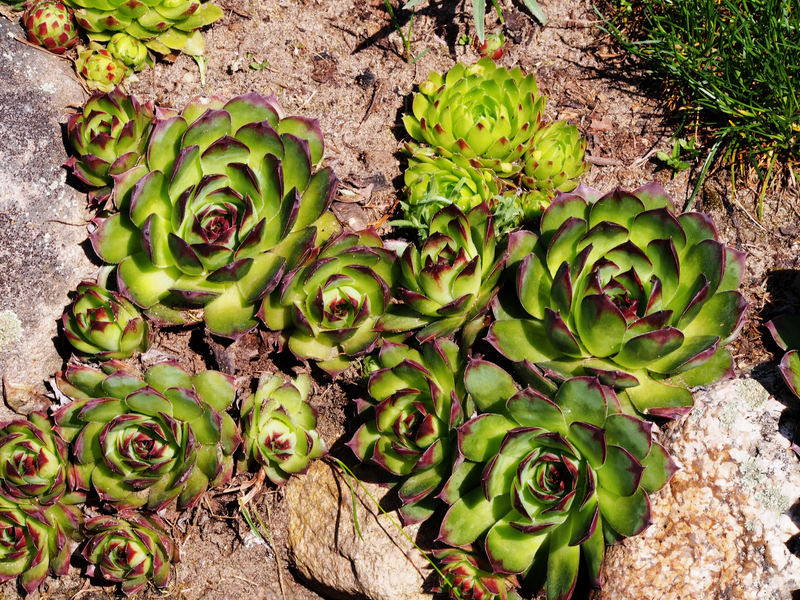From Garden to Table: How to Successfully Grow Your Own Food at Home
Posted on 20/03/2024
Growing your own food at home is a fulfilling and rewarding experience. Not only does it provide you with fresh and healthy produce, it also allows you to connect with nature and become self-sufficient. With the right knowledge and preparation, anyone can successfully grow their own food at home. In this article, we will discuss the steps to take in creating your own garden and tips on how to maintain it for maximum productivity.
Planning Your Garden
The first step in growing your own food at home is to plan your garden. This includes deciding on the type of garden you want (raised beds, containers, traditional ground plots), choosing the location, and selecting the fruits, vegetables, or herbs you want to grow. It is important to choose a location that receives ample sunlight and has good drainage. If you are limited on space, consider using containers or vertical gardens to maximize your planting area.
When selecting what to grow, take into consideration your climate and growing season. Some plants thrive in certain regions while others may require specific conditions such as temperature or soil type. Consider starting small and gradually expanding your garden as you gain more experience.

Preparing Your Soil
Healthy soil is crucial for successful gardening. Before planting, test your soil's pH level and nutrient content. Most plants grow best in a slightly acidic soil with a pH level of 6-7. If necessary, add amendments such as compost or fertilizer to improve the quality of your soil.
It is also important to regularly add organic matter to your soil as it helps retain moisture and provides essential nutrients for plant growth. This can include compost, grass clippings, or shredded leaves.
Planting and Maintaining Your Garden
Once your soil is prepared, it's time to start planting! Follow the instructions on seed packets for proper spacing and depth for each plant. Water regularly but not excessively, as overwatering can lead to disease and pest problems. Mulching around plants can help retain moisture and prevent weeds from growing.
To ensure a successful harvest, it is important to regularly care for your plants by removing any pests or diseases that may appear. Consider using natural methods such as companion planting or homemade insecticidal sprays rather than harsh chemicals that can harm beneficial insects and wildlife.
Pros and Cons of Growing Your Own Food at Home
Pros:
- Fresh and organic produce at your fingertips
- Cost-effective in the long run
- Connecting with nature
- Reduces carbon footprint by eliminating transportation of produce
- Greater control over what pesticides or fertilizers, if any, are used
Cons:
- Requires time and effort for planning, planting, and maintaining the garden
- Weather conditions can greatly affect the success of your harvest
- May require additional equipment or materials for proper care

Tips for Successful Gardening
1. Rotate your crops each year to avoid depleting nutrients from the soil.
2. Research companion plants to deter pests and promote growth. For example, planting marigolds near tomatoes can repel pests.
3. Keep a gardening journal to track what works and what doesn't for future reference.
4. Use natural methods such as compost and mulch to improve soil health and reduce waste.
Takeaways
Growing your own food at home requires dedication and patience, but the rewards are worth it. By planning correctly, preparing your soil, and regularly caring for your plants, you can have a successful garden that provides fresh produce for you and your family.
Remember to start small and expand gradually to avoid feeling overwhelmed. Don't be afraid to try new things and make mistakes - gardening is an ongoing learning process.
In conclusion, from garden to table, growing your own food at home is not only beneficial for your health and the environment, but it also allows you to connect with nature and become more self-sufficient. With proper planning, preparation, and maintenance, anyone can successfully grow their own food at home. So roll up your sleeves and start creating your own garden today!
Latest Posts
Must-Try Planting Concepts for a Beautiful Autumn Garden
DIY Guide to Perfectly Sharpening Garden Shears at Home
Essential Techniques for Maintaining Clean and Lush Artificial Grass
Transform Your Space With Meaningful Zen Garden Plant Choices




